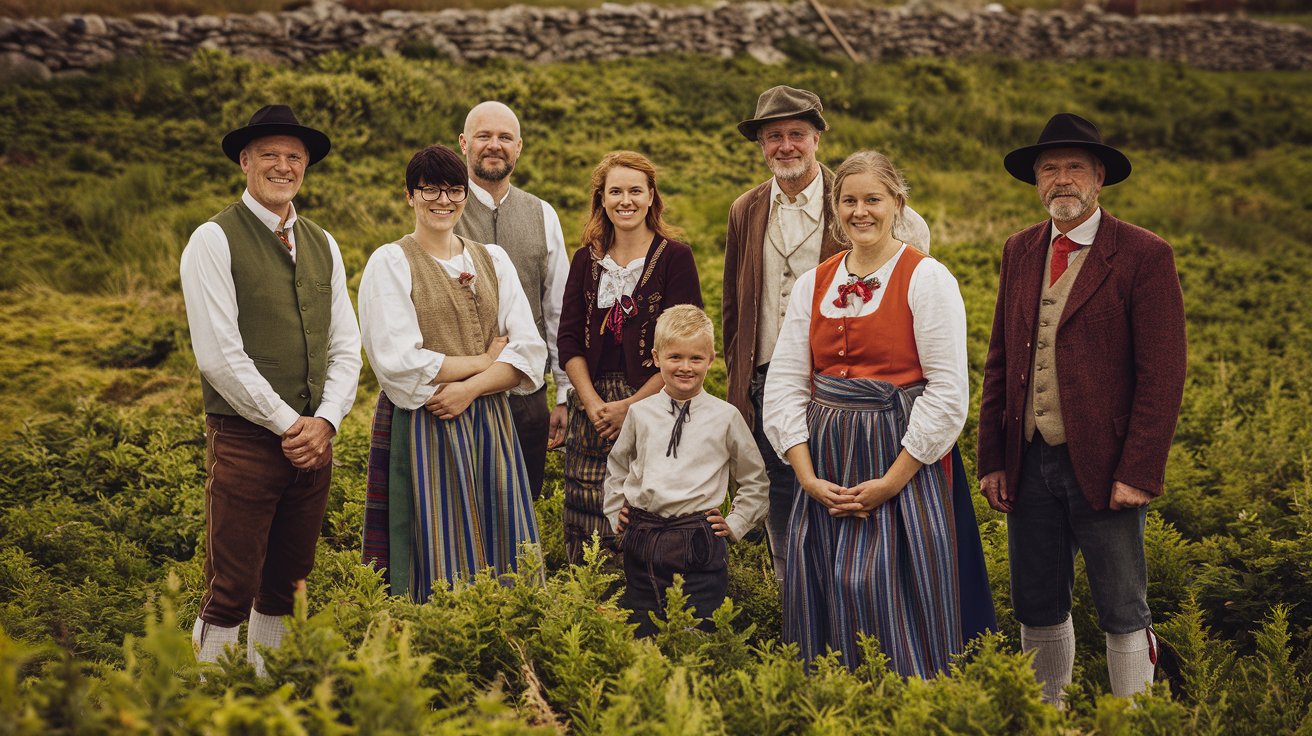
Cornish is a fascinating language with a rich history and unique characteristics. Once considered extinct, it has experienced a revival thanks to dedicated enthusiasts. Did you know that Cornish is a Celtic language closely related to Welsh and Breton? Spoken primarily in Cornwall, England, it boasts a distinct cultural heritage. Interestingly, Cornish was officially recognized as a minority language by the UK government in 2002. This recognition has spurred efforts to teach and promote the language, leading to a growing number of speakers. From traditional songs to modern literature, Cornish continues to thrive, bridging the past and present. Curious about more intriguing facts? Let's dive into the world of Cornish and uncover its hidden gems!
Cornish Language: A Brief Overview
Cornish, a Celtic language from Cornwall in southwestern England, has a rich history and cultural significance. Though it faced near extinction, efforts to revive it have seen success. Here are some fascinating facts about Cornish.
-
Cornish is part of the Brythonic branch of the Celtic languages, closely related to Welsh and Breton.
-
The language was widely spoken in Cornwall until the late 18th century.
-
Cornish experienced a decline due to the dominance of English and social changes.
-
The last native speaker of traditional Cornish, Dolly Pentreath, died in 1777.
Revival Efforts and Modern Usage
Revival efforts have breathed new life into Cornish. These efforts have led to a resurgence in interest and use.
-
The Cornish language revival began in the early 20th century.
-
Henry Jenner published "A Handbook of the Cornish Language" in 1904, sparking renewed interest.
-
The Cornish Language Partnership, formed in 2005, promotes and supports the language.
-
UNESCO reclassified Cornish from "extinct" to "critically endangered" in 2010.
Educational and Cultural Impact
Cornish is now taught in schools and celebrated in cultural events, helping to keep the language alive.
-
Cornish is taught in some primary and secondary schools in Cornwall.
-
The language is also offered as a course at the University of Exeter.
-
Cornish language exams are available for those who wish to certify their proficiency.
-
The annual Cornish Language Weekend celebrates the language with workshops, music, and storytelling.
Cornish in Media and Technology
Modern technology and media have played a significant role in the Cornish revival, making the language more accessible.
-
Cornish radio programs and podcasts are available for learners and speakers.
-
The language has a presence on social media platforms like Facebook and Twitter.
-
Cornish-language apps and online courses help people learn the language.
-
Some video games and software have been translated into Cornish.
Literature and Publications
Cornish literature and publications contribute to the language's richness and diversity.
-
The first Cornish book, "Pascon agan Arluth" (The Passion of Our Lord), dates back to the 14th century.
-
Modern Cornish literature includes poetry, novels, and children's books.
-
The Cornish Bible Project aims to translate the entire Bible into Cornish.
-
"An Gannas" is a monthly Cornish-language magazine covering news, culture, and events.
Cornish in Daily Life
Cornish is used in various aspects of daily life, from signage to personal names.
-
Bilingual road signs in Cornwall feature both English and Cornish.
-
Some businesses in Cornwall use Cornish in their branding and marketing.
-
Cornish names for places and people are becoming more popular.
-
The language is used in traditional Cornish ceremonies and festivals.
Cornish Language Recognition
Recognition and support from official bodies have helped the language gain legitimacy and visibility.
-
Cornish was recognized as a minority language under the European Charter for Regional or Minority Languages in 2002.
-
The UK government provides funding for Cornish language initiatives.
-
Cornwall Council supports the use of Cornish in its communications and services.
-
The Cornish language has its own ISO 639-3 code: "cor."
Fun and Unique Facts
Cornish has some unique and fun aspects that make it stand out among languages.
-
The Cornish word for "ant" is "moryon," which means "little women."
-
Cornish has its own version of the famous "Lorem Ipsum" placeholder text, called "An Unknown Text."
-
The Cornish alphabet has 24 letters, excluding "j" and "k."
-
Cornish has several dialects, including Unified Cornish, Kernewek Kemmyn, and Late Cornish.
-
The Cornish word for "hello" is "dydh da," which literally means "good day."
-
Cornish has influenced the English dialect spoken in Cornwall, known as Cornish English.
Cornish Language: A Living Heritage
Cornish, with its rich history and cultural significance, remains a vibrant part of Cornwall's identity. Efforts to revive and promote this Celtic language have seen remarkable success, with increasing numbers of speakers and learners. Schools, community groups, and digital platforms play crucial roles in keeping Cornish alive. The language's presence in literature, music, and public signage showcases its enduring relevance.
Learning Cornish not only connects individuals to their heritage but also fosters a sense of community and pride. Whether you're a native Cornish speaker or someone curious about this unique language, embracing Cornish can be a rewarding journey. By supporting language initiatives and participating in cultural events, everyone can contribute to the preservation and growth of Cornish. This living heritage continues to thrive, proving that languages, no matter how ancient, can adapt and flourish in modern times.
Was this page helpful?
Our commitment to delivering trustworthy and engaging content is at the heart of what we do. Each fact on our site is contributed by real users like you, bringing a wealth of diverse insights and information. To ensure the highest standards of accuracy and reliability, our dedicated editors meticulously review each submission. This process guarantees that the facts we share are not only fascinating but also credible. Trust in our commitment to quality and authenticity as you explore and learn with us.


